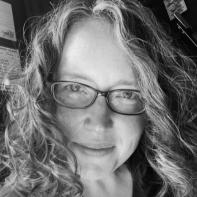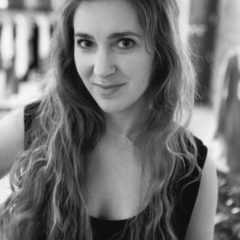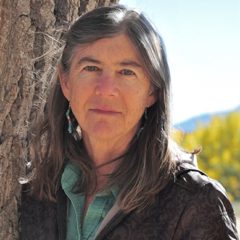Split Rock Review, Spring 2020
The new issue of Split Rock Review, formerly edited from Duluth, now finding its home in northwest Wisconsin, is now available.
The new issue of Split Rock Review, formerly edited from Duluth, now finding its home in northwest Wisconsin, is now available.
I went to the Day of the Dead / All Souls event at the Depot Underground on Friday. The theme of the reading was remembering ancestors who have played important roles in our lives and community. Featured readers, of whom I took pictures, were Zomi Bloom, Brady Kamphenkel, Sheila Packa, Ellie Schoenfeld and Gary Boelhower. An open mic followed; I got a pic of Eric Chandler reading. Richie Townsend played electric guitar.
The Arkansas Democrat Gazette reports that UW-Superior professor Jayson Iwen has won a $5,000 poetry prize.
Local author Julie Gard has published new poetry in Coldnoon, from a project rooted in eavesdropping called “Eavesdropping in Britain.”
 Julie Gard’s new poetry is awesome.
Julie Gard’s new poetry is awesome.
“This piece consists of 51 texts I sent to myself first thing in the morning during the 2016 presidential election season. Hopefully some of them will speak to you,” says Gard, describing her work in Superstition Review.
Jayson Iwen has co-translated a significant poem by Salim Barakat, a Kurdish-Syrian poet.
It’s a love poem, and as co-translator Huda Fakhreddine says, “Dylana and Diram’s love infiltrates and overwhelms the landscape. Barakat does not use images of nature to draw analogies with their relationship. The spiritual and sensual bond between them consumes nature and natural scenery and transforms it into a mere manifestation of a surging emotional deluge.”
The poem can be read in the prestigious World Literature Today.
Tuesday night I attended the publication party and reading for “Chance: Poems,” an anthology of poems edited by Kathleen Roberts in honor of the art installation currently at the Tweed Museum.
Sometimes it takes traveling far from home to find out where you come from. Sonofmel & the Slideman have farmed decades of life into a harvest of sounds, growing rows of song and spoken word around dreamscapes rich enough to farm. They’ve just begun an album together at Sacred Heart Studio and will debut one or two during a Jan. 17 performance at Bent Paddle Brewing.
Video recorded at Driftless Books & Music in Viroqua, Wis.
New video produced by Killy Kay, shot at various Duluth locations in 2016. It features poetry written and performed by Laura Mae Sellner for the Homegrown Music Festival.
 Poet Dora Malech gets all Duluthy in a poem published in the May 29 issue of The New Yorker. It’s more that a reference — the poem is basically set in Duluth.
Poet Dora Malech gets all Duluthy in a poem published in the May 29 issue of The New Yorker. It’s more that a reference — the poem is basically set in Duluth.
The text of “I Now Pronounce You” is available online, along with an audio track of the poet reading it.
Malech grew up in Bethesda, Md., and now lives in Baltimore. Her connection to Duluth is unknown, unless it’s as simple as the first line of the poem: “Our friends are getting married in Duluth.”
A few snapshots from Sunday’s event at Peace United Church. Jim Perlman of Holy Cow Press organized the poetry reading, which featured Crystal Gibbins, author of Now/Here, and Gary Boelhower, author of Naming Rites. The event included musical interludes by Sara Thomsen.
 In an interview for The Rumpus, an online magazine focused on culture, Duluth poet Connie Wanek discusses her latest book, the challenge of looking back at older poems, and what prioritizing writing looks like.
In an interview for The Rumpus, an online magazine focused on culture, Duluth poet Connie Wanek discusses her latest book, the challenge of looking back at older poems, and what prioritizing writing looks like.
Link: The Rumpus Interview with Connie Wanek
Connie Wanek said that she only started writing poetry seriously in her late thirties, but since then, she’s been published in Poetry and the Atlantic Monthly, has received a Witter Bynner Fellowship at the Library of Congress, and been named a George Morrison Artist of the Year, among her many other honors. Her fourth book, Rival Gardens: New and Selected Poems, was released by the University of Nebraska Press this year, and makes the argument that she is one of contemporary America’s great poets.

This week we stretch the boundaries of Selective Focus — both geographically and conceptually. Moheb Soliman is a poet who will be installing his writing in the form of very official looking signs throughout Apostle Islands National Lakeshore and the four other major Great Lakes national parks at trails, vistas, and beaches as part of the National Park Service centennial celebration. Some of the installations are already done and this month he will be finishing up at Isle Royale National Park.
There’s a new posting at the Reference@Duluth blog that involves a little literary detective work:
The Duluth Daily News of March 30, 1892, printed a letter offering an unpublished poem by Walt Whitman. The letter writer claims that Whitman had visited Duluth for his health the previous summer and had been so impressed with the Zenith City that he wrote a poem in praise of Duluth and had sent it to a friend in town.